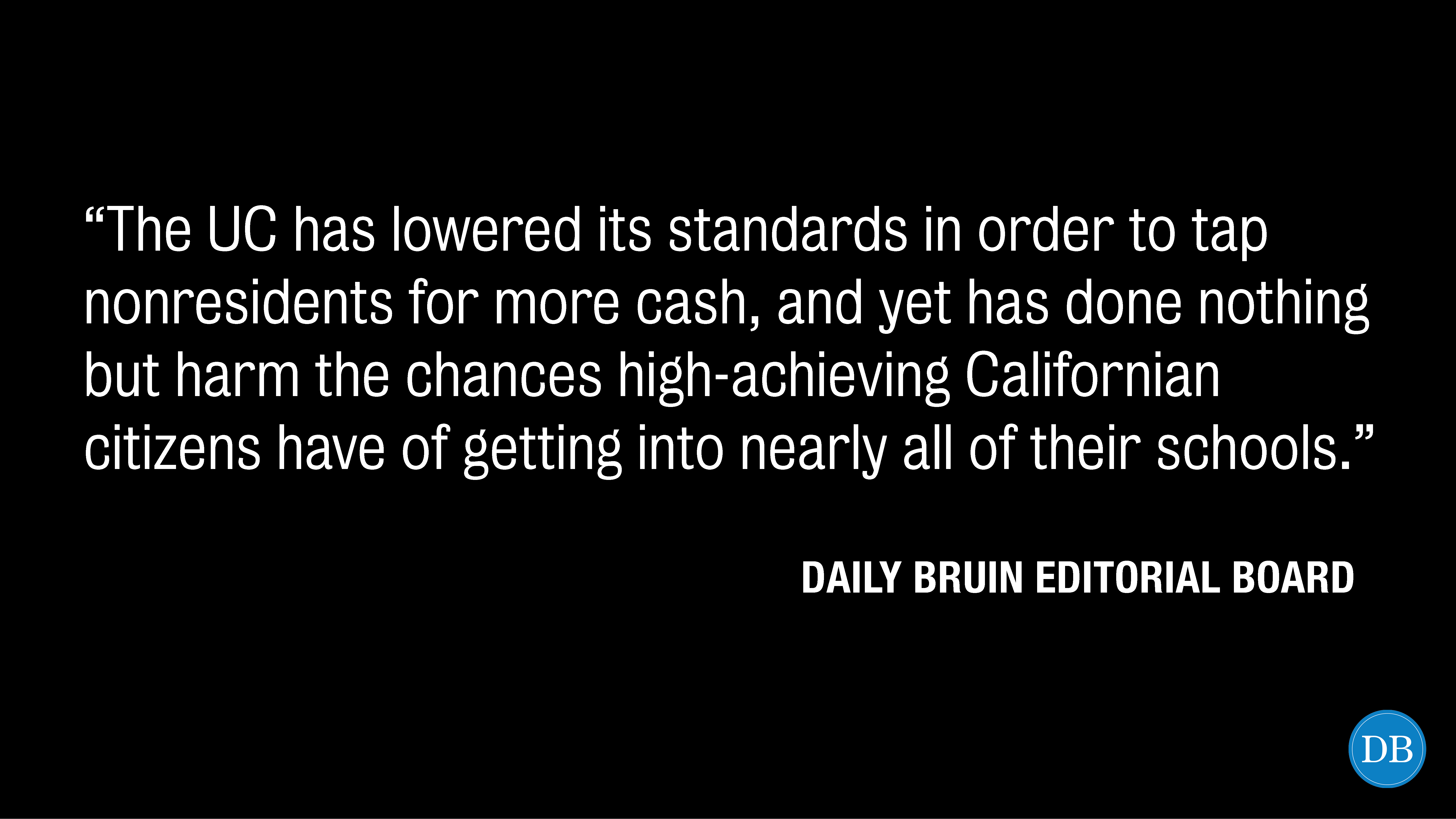Editorial: UC must not compromise admission standards for nonresidents

By Editorial Board
April 4, 2016 12:22 a.m.
Californian residents were outraged last week after the state auditor released a report noting that the University of California has recently relaxed standards for nonresident applicants.
While increasing nonresident enrollment is understandable given the UC’s budget deficit, the UC must continually ensure that equally qualified residents aren’t unfairly denied entrance to any UC campus.
The report revealed that at every campus except for UC Merced, the newest in the system, the mean of weighted high school grade point averages was lower for nonresidents than it was for residents. The discrepancy was quite large at some campuses. At UCLA, for instance, nonresidents had an average GPA of 4.12 while residents had an average GPA of 4.21.
Moreover, the audit found that the number of admitted nonresidents with test scores lower than the median scores of admitted residents has been steadily growing each year.
All of this is contrary to the University’s policy, which states that nonresident students must compare favorably to California residents at the same campus. However, that standard is too vague and obviously unenforced. That’s why the UC needs a clear policy so the pool of admitted nonresident students is at least equally, if not more, qualified than admitted residents at any given campus.
Time and time again, the UC has reasoned that revenues generated by nonresident supplemental tuition subsidizes the enrollment of residents, using out-of-state students as a piggybank. Essentially, the University hikes up rates on nonresidents – most recently increasing nonresident supplemental tuition by about $2,000 between the 2014 and 2015 academic years – and enrolls them in greater numbers to make up for insufficient state funding.
In fact, according to the audit, nonresident tuition revenue increased by about $86.5 million at UCLA alone between the 2010 and 2014 academic years. At the same time, resident enrollment at UCLA decreased incrementally while nonresident enrollment increased by more than 3,000 students.
Despite all this new income, no campus other than UC Merced, which admitted almost 2,000 more residents in 2014 than in 2011, saw a significant rise in resident enrollment.
This is a rotten deal for residents. The UC has lowered its standards in order to tap nonresidents for more cash, and yet has done nothing but harm the chances high-achieving Californian citizens have of getting into nearly all of their schools.
Out-of-state tuition costs and disappearing financial aid for nonresident students may aid revenue, but it also betrays the University’s commitment to diversity. The audit found that, excluding international students, only 11 percent of the nonresident students admitted across the University for the 2014-2015 academic year were underrepresented minorities compared to the 30 percent of admitted residents who were.
This runs in the face of what the University is supposed to stand for: equal access to affordable higher education for Californians.
Nonresidents are important members of the UC community, and the questions over how to fund the University are valid. But ultimately, the UC cannot lower its admission and diversity standards for either of those purposes.


